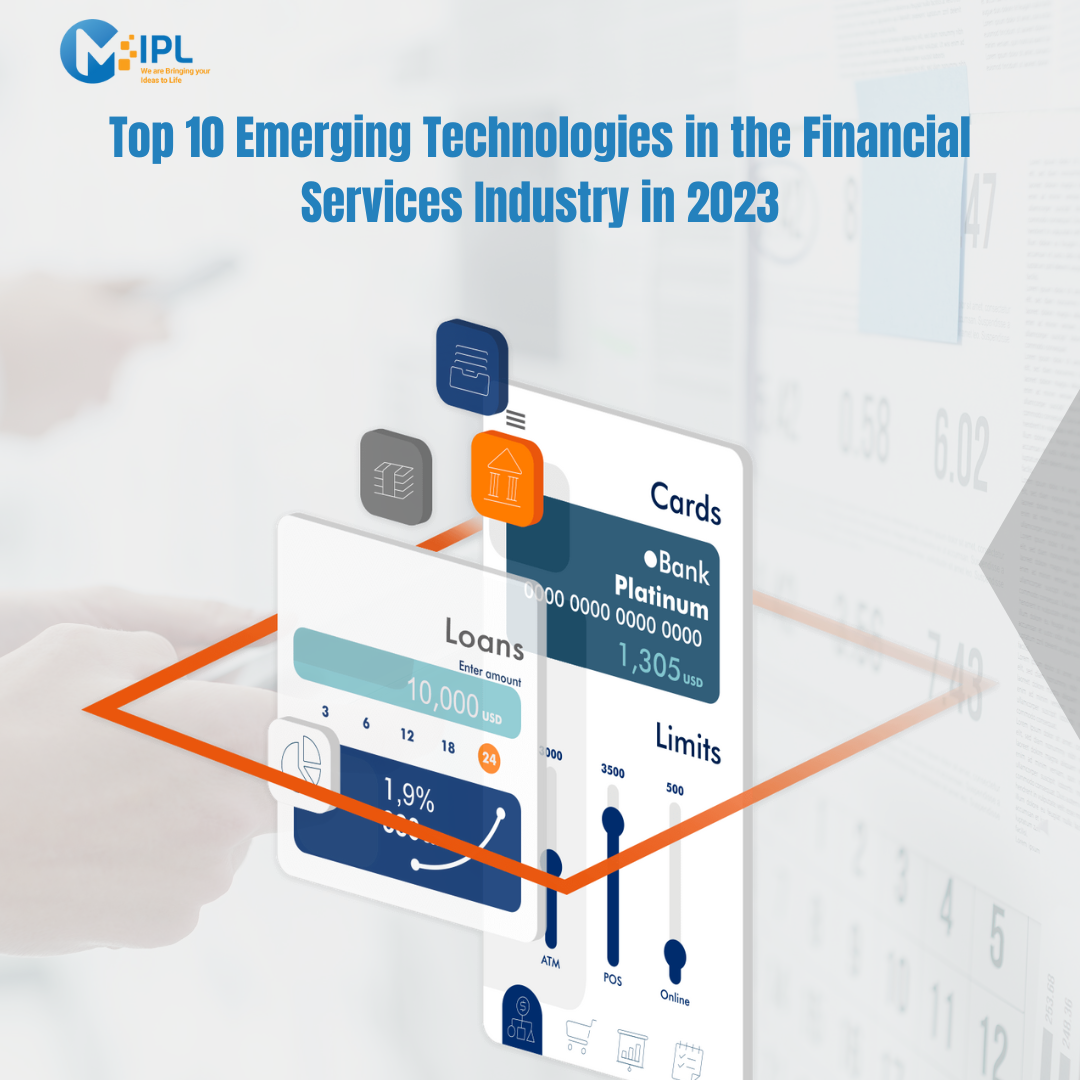The financial services industry is experiencing a rapid technological transformation, shaping the future of how financial institutions operate and interact with customers. In 2023, several emerging technologies are poised to revolutionize the sector, fostering innovation, efficiency, and enhanced customer experiences. In this blog, we will explore the top 10 emerging technologies in the financial services industry, and how they are reshaping the landscape for financial institutions. Additionally, we will delve into the importance of migration and porting and its role in empowering financial organizations for success in the digital era.
Artificial Intelligence (AI) and Machine Learning:
The banking industry has benefited from Artificial Intelligence (AI) and Machine Learning (ML). They have allowed banks to handle massive amounts of data and draw conclusions due to their ability to evaluate real-time trends, which has aided in speedy decision-making. They are increasing their effectiveness while operating more efficiently. This has decreased the time and cost of several banking processes. AI and Machine Learning have gained prominence in the financial services industry for their ability to process vast amounts of data, enabling data-driven decision-making. From personalized customer experiences to fraud detection and risk assessment, AI-powered algorithms are reshaping various aspects of the financial sector, leading to improved efficiency and cost-effectiveness.
Blockchain and Distributed Ledger Technology:
Blockchain is one of the most innovative Emerging Technologies in the Financial Services Industry. This term is mostly used in the context of cryptocurrency. Companies can use blockchain technology to protect data, verify and identity, record transactions, sign contracts, and improve traceability. Because of its safety and dependability, this technology is beneficial to financial services. Blockchain and Distributed Ledger Technology offer secure and transparent transactions, transforming the way financial institutions handle payments, settlements, and identity verification. Smart contracts facilitate automated processes, reducing intermediaries and operational complexities, thereby enhancing trust, and reducing transaction costs.
Robotic Process Automation (RPA):
Robotic Process Automation is streamlining back-office operations and administrative tasks within financial organizations. By automating repetitive processes, RPA improves accuracy and operational efficiency while freeing up human resources for more value-added tasks, ultimately boosting productivity and reducing errors.
Internet of Things (IoT):
The Internet of Things is paving the way for innovative financial services, providing data collection from connected devices. IoT App Development for the Modern Age offers personalized financial solutions, such as insurance premiums based on real-time data and usage patterns, and enables risk assessment through data from IoT devices.
Biometric Authentication:
Biometric authentication, such as fingerprint, facial recognition, and voice identification, is becoming a prevalent security measure in the financial industry. By replacing traditional passwords, biometric authentication offers enhanced security, protecting customer data and mitigating the risks associated with identity theft and fraud.
Quantum Computing:
Quantum Computing is poised to revolutionize data processing capabilities, enabling financial institutions to handle complex calculations and real-time risk analysis. With significantly faster processing speeds, quantum computing has the potential to transform portfolio optimization and risk management strategies.
Cloud Banking:
A cloud-based architecture makes banking processes significantly more convenient and less prone to errors. Cloud banking is ideal for smooth global payments, P2P transfers, and contactless payments.
Augmented Reality (AR) and Virtual Reality (VR):
AR and VR technologies are reshaping customer experiences within the financial services industry. From virtual branch visits to personalized wealth management presentations, these technologies offer immersive and engaging experiences, improving customer satisfaction, and deepening client relationships.
RegTech (Regulatory Technology):
RegTech solutions are critical for financial institutions to efficiently manage compliance requirements with an increasing regulatory landscape. These technologies automate compliance processes, monitor transactions, and ensure adherence to regulations, reducing the risk of penalties and reputational damage.
Embedded Finance:
Embedded finance is a new tech in financial services that will overgrow in 2023. Embedded finance is a concept that allows non-financial platforms to integrate payments for loans, insurance, debit cards, and investment instruments. Embedded financial services are especially beneficial for e-commerce enterprises since they help improve client loyalty by facilitating transaction speed.
Cryptocurrencies and Central Bank Digital Currencies (CBDCs):
Cryptocurrencies and CBDCs are transforming the future of digital payments and cross-border transactions. As more financial institutions adopt cryptocurrencies for transactions and investment, and governments explore CBDCs, the financial landscape is evolving towards a more decentralized and efficient system.
The Importance of Mobile App Migration
Mobile app migration is of paramount importance for the financial services industry in today’s digital landscape. As technology rapidly evolves, mobile apps have become a crucial touchpoint for customers to access financial services conveniently and securely. Migrating from outdated or inefficient mobile applications to modern, robust platforms offers numerous benefits that empower financial institutions to stay competitive, enhance customer experiences, and drive business growth. Let’s explore the significance of mobile app migration in the financial services industry:
Benefits of Mobile App Migration
Enhanced User Experience: A migrated mobile app provides a seamless and user-friendly interface, ensuring a delightful customer experience, and encouraging loyalty. In the fast-paced world, customers expect seamless and user-friendly experiences when accessing financial services through mobile apps. Outdated apps with clunky interfaces and slow response times can lead to customer dissatisfaction and attrition. Mobile app migration allows financial institutions to revamp their user interfaces, making them intuitive and visually appealing, resulting in enhanced user experiences that encourage customer loyalty.
Security and Compliance: Upgraded mobile apps incorporate the latest security features and compliance standards, protecting sensitive customer data and ensuring regulatory adherence. The financial industry is highly regulated, with data privacy and security being top priorities. Legacy mobile apps may lack the latest security features, leaving them vulnerable to cyber threats and data breaches. Migrating to modern platforms ensures the implementation of robust security measures and compliance with industry regulations, safeguarding sensitive customer data and maintaining trust.
Scalability and Flexibility: As customer demands evolve, financial institutions must be agile enough to adapt to changing market trends. Legacy mobile apps may struggle to accommodate new features or support increasing user demands. Migrating to scalable and flexible platforms allows financial organizations to respond promptly to customer needs and scale their services as the business grows.
Improved Performance: Outdated mobile apps may suffer from slow loading times and frequent crashes, leading to frustration for users. A successful migration to a new platform results in improved app performance, reduced load times, and enhanced responsiveness, resulting in a smooth and seamless user experience.
Cost Savings: Maintaining and supporting outdated mobile apps can be costly in terms of ongoing maintenance and development efforts. Investing in mobile app migration may require an initial investment, but in the long run, it leads to cost savings by streamlining processes, reducing maintenance expenses, and optimizing resources.
Competitive Edge: In a fiercely competitive financial services landscape, having a cutting-edge mobile app can provide a significant competitive advantage. A modern app that offers innovative features, faster transactions, and personalized experiences can attract new customers and retain existing ones.
Integration with New Technologies: Mobile app migration allows financial institutions to integrate new technologies and services seamlessly. This integration opens up opportunities for offering innovative financial solutions, such as biometric authentication, contactless payments, and personalized investment recommendations.
Mobile-First Approach: With the growing trend of mobile-first consumer behavior, a mobile app is often the primary channel for customer interactions with financial institutions. Embracing mobile app migration ensures that financial organizations prioritize their mobile presence, catering to customers’ preferences for mobile banking and on-the-go transactions.
Customer Retention and Loyalty: A superior mobile app experience plays a crucial role in customer retention and loyalty. By addressing pain points, offering convenience, and delivering personalized services, migrated mobile apps can strengthen customer relationships and foster loyalty in a competitive market.
Conclusion
In conclusion, mobile app migration is a strategic move for the financial services industry to meet the evolving needs of tech-savvy customers and remain at the forefront of digital transformation. By investing in modern and efficient mobile platforms, financial institutions can build strong customer relationships, drive business growth, and position themselves as leaders in the digital age.
The financial services industry in 2023 is witnessing a profound transformation with the emergence of various groundbreaking technologies. From AI-powered decision-making to secure blockchain transactions, financial institutions are leveraging these technologies to drive innovation, efficiency, and customer-centricity. Moreover, mobile app migration has become a necessity for financial organizations to stay competitive, providing enhanced user experiences, security, and scalability. As the industry embraces these emerging technologies and mobile app migration, it is poised to deliver an exciting future of financial services for customers and stakeholders alike.


